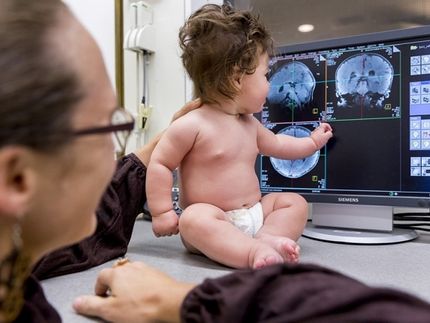Changes in brain function in early HIV infection: A reliable indicator of disease prognosis?
Measurable changes in brain function and communication between brain regions may be a consequence of virus-induced injury during the early stages of human immunodeficiency virus (HIV) infection. These abnormalities and their implications in disease prognosis are detailed in Brain Connectivity, a journal published by Mary Ann Liebert, Inc.
Diminished cognitive function will develop in about half of individuals infected with HIV, which may include deficits in memory, attention, psychomotor capabilities, or verbal fluency. Evidence of cognitive decline in HIV infection has implications for prognosis, reduced survival time, and increased risk of death.
Xue Wang and colleagues from Northwestern University (Chicago and Evanston, IL) and North Shore University Health System (Evanston), used functional magnetic resonance imaging (fMRI) to obtain blood-oxygen-level-dependent measurements in multiple brain regions that yield information on resting-state brain connectivity. They compared the measurements collected in HIV-infected (less than 1 year) and healthy subjects. The authors report "prominent changes" between the two groups in the functional connectivity of visual networks, which have a role in visuo-motor coordination. Based on these findings, they conclude that functional connectivity measurements may be a useful, noninvasive tool for identifying neurological involvement and central nervous system injury early in the course of HIV infection. The findings from the NIH-funded Chicago Early HIV Infection Study are presented in the article, "Abnormalities in Resting-State Functional Connectivity in Early Human Immunodeficiency Virus Infection."
"These findings indicate that changes in brain function are occurring very early in HIV infection, and subclinical alterations in functional connectivity may reflect vulnerability to cognitive decline," says Ann Ragin, PhD, Principal Investigator and Research Professor, Northwestern University Medical School, Chicago, IL.
Most read news
Organizations
Other news from the department science

Get the life science industry in your inbox
By submitting this form you agree that LUMITOS AG will send you the newsletter(s) selected above by email. Your data will not be passed on to third parties. Your data will be stored and processed in accordance with our data protection regulations. LUMITOS may contact you by email for the purpose of advertising or market and opinion surveys. You can revoke your consent at any time without giving reasons to LUMITOS AG, Ernst-Augustin-Str. 2, 12489 Berlin, Germany or by e-mail at revoke@lumitos.com with effect for the future. In addition, each email contains a link to unsubscribe from the corresponding newsletter.





















































